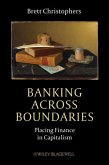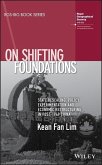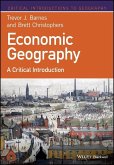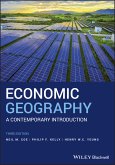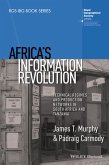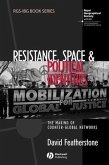Dieser Download kann aus rechtlichen Gründen nur mit Rechnungsadresse in A, B, BG, CY, CZ, D, DK, EW, E, FIN, F, GR, HR, H, IRL, I, LT, L, LR, M, NL, PL, P, R, S, SLO, SK ausgeliefert werden.
"That said, and what is of particular interest here, is the way in which Banking Across Boundaries explicitly takes aim at performativity, a conceptual mainstay of the cultural economy of finance." (Journal of Cultural Economy, 22 March 2013)
'An innovative, well-researched and invaluable book on the importance of banks and banking to contemporary capitalism. The vital importance of their cross-boundary activity and the controversy over whether and how they really do contribute to the wealth of nations are here illuminated in novel ways.'--David Harvey, Distinguished Professor, City University of New York
'A trenchant, theoretically sophisticated analysis of the reciprocal relationship between economic ideas and material developments in banking and finance. In a book sure to make economists and ordinary citizens rethink the recent financial crisis, Christophers demands that we take the long historical view and place national economies in a global context. This is a fresh, exciting, and probing call for more expansive frames of economic analysis and more critical reflection on the data that allow us to know what we think we know about productivity and finance.'--Mary Poovey, Samuel Rudin University Professor in the Humanities, New York University
'In Banking Across Boundaries Brett Christophers walks us through a history of capitalism that considers the importance of how financial intermediation is counted in economic geographies. Crucial here is the evolution of banks' spatial anatomy and conceptions of banks' economic productiveness. Explained over three periods of capitalist development, Christophers does a splendid job in detailing how ideas and practices enable one another in how banks operate across boundaries and why they are considered to be productive in modern national accounting. This book is of great interest to all scholars of finance in the international political economy.'--Leonard Seabrooke, Professor of International Political Economy and Economic Sociology, Copenhagen Business School



